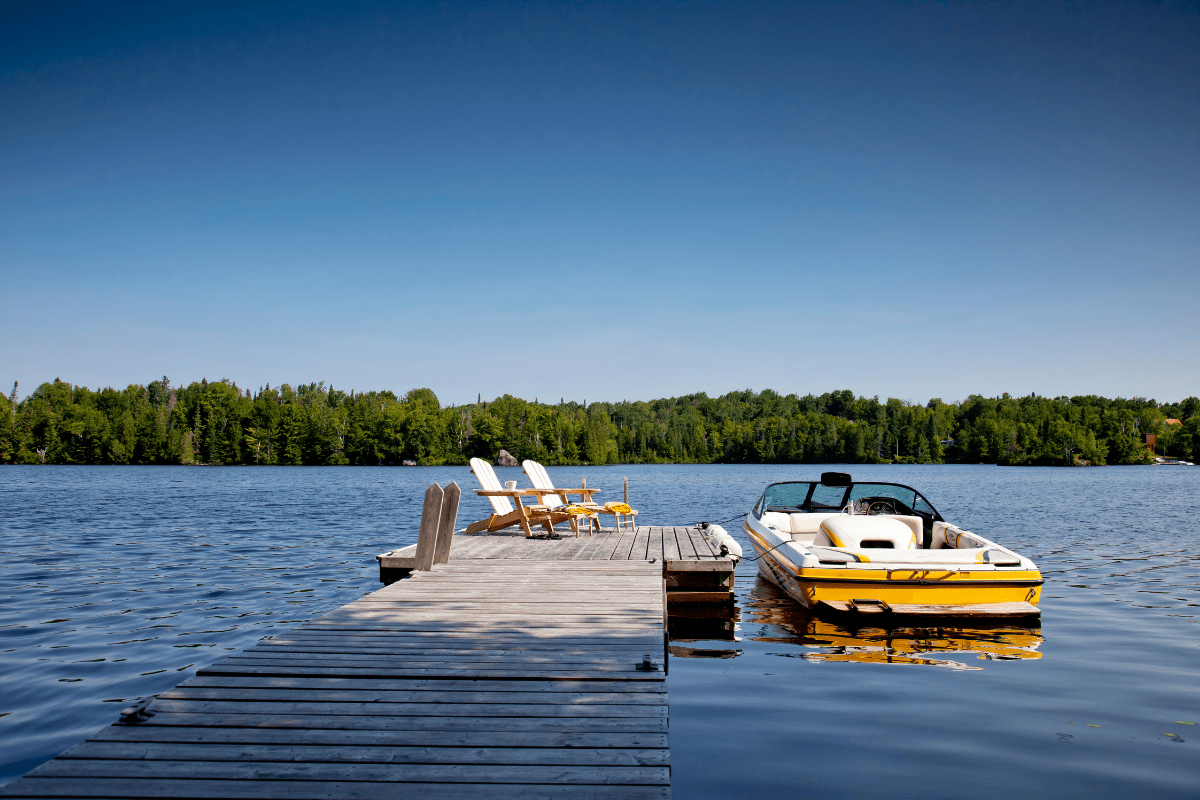So you're thinking about buying a home in Port St. Lucie? Welcome to Florida's sixth-largest city, where the median home price hovers around $400,000 and you can still find a decent place without selling a kidney. This former retirement community has grown up into a full-fledged metro area with something for everyone… if you know where to look.
The market reality check you need
Let's start with the numbers that actually matter. Port St. Lucie's housing market has shifted dramatically in 2025, with homes now sitting on the market for 84 days average instead of flying off the shelves in hours like they did during the pandemic frenzy. This is great news if you're buying, less thrilling if you're selling.
The median home price has stabilized between $397,000 and $400,000, which sounds like a lot until you compare it to Palm Beach County where you'd need to add another zero for anything decent. Local broker Steve Banasiak from Baron Real Estate dismisses crash predictions, noting the market still has only two to three months of inventory. That's technically still a seller's market, though barely.
What's driving all this? Population growth, plain and simple. The city has ballooned to 258,575 residents with a 4.8% annual growth rate that would make any city planner sweat. These aren't just retirees anymore either. The median age has dropped to 43.7 years, and professional workers now make up 77% of the workforce. Translation: your new neighbors might actually be awake before noon.
Master-planned communities that actually deliver
Tradition stands as the crown jewel of Port St. Lucie's modern development game. This isn't your typical Florida subdivision with a fancy name and a sad fountain.
Tradition: Where your HOA fees actually buy something
Spanning 8,000 acres west of I-95, Tradition commands median prices between $430,000 and $452,000 for good reason. The community features 500 acres of interconnected lakes and waterways plus 300 acres of parks. That's not marketing fluff… you can actually kayak from one end to the other if you're into that sort of thing.
The builders here include the usual suspects like Mattamy Homes, Taylor Morrison, and D.R. Horton, with homes ranging from 1,300-square-foot townhomes to 2,900-square-foot single-family houses. But here's what sets Tradition apart: they actually built a Cleveland Clinic hospital right in the community. No more 45-minute drives to the ER when junior decides to test gravity from the roof.
The monthly HOA fees range from $146 to $578 depending on which section you choose. Yes, that's a car payment for some folks, but you're getting resort-style clubhouses, the Tradition Town Center with its farmers markets, and enough community events to make even the most antisocial neighbor emerge from their cave occasionally.
St. Lucie West: The sensible older sibling
If Tradition is the flashy younger brother, St. Lucie West is the reliable one who graduated college without drama. With median prices between $355,000 and $372,000, it offers what local realtor Holly Meyer Lucas describes as many of Tradition's amenities without the premium price tag.
Most homes here date from the 1990s to 2009, which means mature trees and landscaping that doesn't look like a moonscape. The HOA fees are more reasonable too, typically running $150 to $300 monthly. You'll find a mix of age-restricted communities like The Cascades alongside regular neighborhoods where kids still ride bikes in the street.
The real draw? Location and established amenities including:
- St. Lucie Trail Golf Club (public, so no membership drama)
- Town Center shopping that's actually useful
- Clover Park for Mets spring training
- Schools that don't require GPS to find
- Actual sidewalks (revolutionary in Florida)
Golf communities where your clubs won't collect dust
Listen, I know everyone says they're going to take up golf when they move to Florida. Most people's clubs end up as expensive garage decorations. But if you're serious about the sport, Port St. Lucie delivers.
PGA Village Verano isn't just marketing hype
Starting in the mid-$300,000s and reaching past $900,000 for custom estates, PGA Village Verano offers 54 championship holes designed by Pete Dye and Tom Fazio. These aren't municipal courses where you're dodging gators and questionable maintenance. This is the real deal.
But here's the kicker: they built South Florida's largest private pickleball complex with 27 courts. Because apparently golf isn't enough exercise for retirees anymore. The 27,000-square-foot Club Talavera serves as command central for the social scene, and the Cresswind section caters exclusively to the 55-plus crowd who've earned the right to not deal with screaming toddlers at the pool.
Tesoro Club: Where millionaires go to practice their swing
If PGA Village is first class, Tesoro Club is the private jet. We're talking $760,000 to over $2 million for Mediterranean-style homes on 1,400 acres. The two Arnold Palmer and Tom Watson signature golf courses are just the beginning.
The 22,000-square-foot clubhouse overlooks a 120-acre lake because of course it does. Add in 10 tennis courts, 11 pickleball courts, and a full-service spa, and you understand why the quarterly fees run $718 for the Master Association plus another $1,800 to $2,900 for individual neighborhoods. That's basically a mortgage payment just in fees, but hey, someone has to maintain those championship greens.
The school situation (spoiler: it's complicated)
Here's where things get interesting. St. Lucie Public Schools ranks 47th out of 68 Florida districts. Not exactly something to brag about at the country club.
The district averages 44% math proficiency and 47% reading proficiency compared to the 52% state average. But before you start Googling private schools, know that nine schools earned "A" grades in 2024, and certain neighborhoods feed into notably stronger schools.
Elementary schools that won't make you panic
Morningside Elementary and Mariposa Elementary lead the pack, while Palm Pointe Educational Research School in Tradition ranks among Florida's top 119 elementary schools. Yes, that's oddly specific, but when you're school shopping, you'll take any good news you can get.
High schools holding their own
The high schools actually perform respectably. Both Port St. Lucie High School and St. Lucie West Centennial High School boast 96% graduation rates. St. Lucie West Centennial even offers the AICE Cambridge International program, which sounds fancy enough to impress college admissions officers.
For those with deeper pockets, 16 private schools serve about 9% of local K-12 students. Grace Christian Academy and St. Andrew's Episcopal Academy with its STEM focus top the list, though you'll pay dearly for the privilege.
Safety stats that'll help you sleep at night
Port St. Lucie consistently ranks as one of America's safest cities, with crime rates 62.2% below the national average. Your chance of becoming a crime victim is just 1 in 118, which beats the odds in most Florida cities where that number looks more like a lottery ticket.
Violent crime affects only 117 per 100,000 residents, while property crime rates of 762 per 100,000 sit 61% below national figures. The safest neighborhoods cluster in southwest Port St. Lucie, with gated communities like Newport Isles earning top marks for security.
The Port St. Lucie Police Department has maintained the city's designation as the safest city over 100,000 population for 13 consecutive years. Though with only 1.35 officers per 1,000 residents compared to the state average of 2.0, they're clearly working smarter, not harder.
The commute reality nobody talks about
Okay, deep breath. Port St. Lucie has the sixth-worst commute in America according to MoneyGeek. The average commute runs 31 minutes one-way at a blazing 27 mph during rush hour. That's $1,213 annually just in gas to sit in traffic contemplating your life choices.
If you're working in West Palm Beach, budget 60 minutes each way. Stuart is a more manageable 30 to 40 minutes north. The city's walk score of 13 out of 100 means you'll drive everywhere, including to check the mail if you're feeling lazy.
Public transit exists… technically. The Area Regional Transit runs eight free routes weekdays from 6 AM to 8 PM, and the Port St. Lucie Express offers service to West Palm Beach for $3 each way. But let's be honest, you're buying a car. Probably two.
Hidden costs that'll surprise you
Beyond the mortgage, you need to budget for Florida's special brand of homeownership expenses. Property taxes in the city proper run $5.06 per $1,000 of taxable value, but that's just 21% of your total tax bill once the county, school district, and various mysterious entities get their cut.
HOA fees vary wildly from zero in parts of Torino to $578 monthly in premium Tradition neighborhoods. Many newer developments also carry Community Development District fees for infrastructure bonds. These CDDs can add hundreds more monthly, and they're about as fun as they sound.
Insurance: The real Florida tax
Every property in Port St. Lucie carries a 100% extreme wind risk rating. That's insurance-speak for "expensive." Frame construction costs more to insure than concrete block, and proximity to water makes insurers nervous. Flood insurance might be required even outside official flood zones since 40% of flood claims come from supposedly safe areas.
Your neighborhood shopping list
Different buyers need different neighborhoods, and Port St. Lucie actually delivers options for most budgets and lifestyles.
Best neighborhoods by buyer type:
For families: Tradition or St. Lucie West offer the best schools, amenities, and that suburban feel where kids can actually play outside.
For retirees: The 55-plus communities starting in the $300,000s provide built-in social networks and maintenance-free living. Check out Cresswind at PGA Village or Lake Park at Tradition.
For first-timers: Spanish Lakes One offers affordability with a $595 monthly lot rent that includes maintenance. It's not fancy, but it gets you in the door.
For luxury buyers: Tesoro Club and PGA Village estates cater to those who consider golf a lifestyle, not just a sport.
For space lovers: Torino's quarter-acre lots with many no-HOA options let you park that RV and boat without angry letters from management.
The bottom line on Port St. Lucie
Port St. Lucie in 2025 represents a rare moment where buyers actually have negotiating power in a Florida market. The population keeps growing at 4.8% annually, construction can't keep pace, and yet homes aren't selling instantly anymore. It's like finding a parking spot at the beach on a Saturday… suspicious but welcome.
Local experts like Holly Meyer Lucas remain optimistic, noting that prices will stabilize rather than crash. The continuous influx from expensive northern markets keeps demand steady, with 31% of residents considering moves but 69% planning to stay in the area.
For investors, the average monthly rent of $2,108 and potential Airbnb revenue around $25,571 annually make the numbers work, assuming you can handle the insurance sticker shock. The rental market remains tight enough that finding tenants shouldn't require sacrificing any chickens.
Yes, the commute situation is legitimately terrible. The schools need work. Insurance costs might make you question your sanity. But you're getting access to 61 golf courses, beaches 15 minutes away, year-round sunshine, and crime rates that would make most cities jealous. Plus, no state income tax, which helps offset those insurance bills.
Port St. Lucie isn't perfect, but it's perfectly livable for the right buyer. Whether you're chasing golf balls, good schools, or just a place where your dollar stretches further than a Miami minute, this sprawling city offers neighborhoods that actually deliver on their promises. Just budget extra for gas and patience for that commute.





